The discussion heated up, as residents aired their frustrations around the effects of gentrification, or what many in attendance began to refer to as "ethnic cleansing."
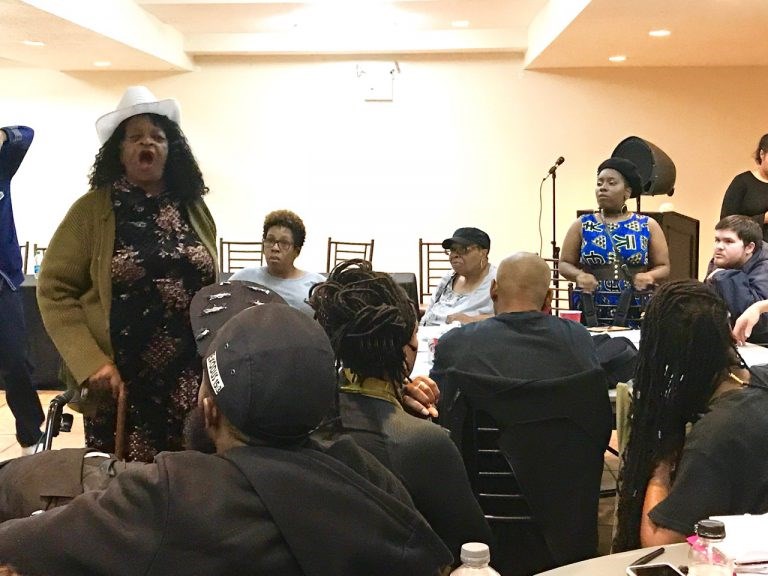
Bridge Street Development Corporation on Thursday hosted a town hall discussion on anti-displacement and gentrification at Bedford Stuyvesant Restoration Corporation, giving Central Brooklyn residents a chance to express their feelings of frustration and powerlessness around no longer being able to afford the community their families have lived in for, in some cases, generations.
Close to 150 residents packed into the lower level of Restoration Plaza Thursday night to first take part in a resource fair where representatives from LISC, the Commission on Human Rights, Brooklyn Job Corps, Grow NYC and others handed out information and talked to residents about employment, housing stability and other local support services.
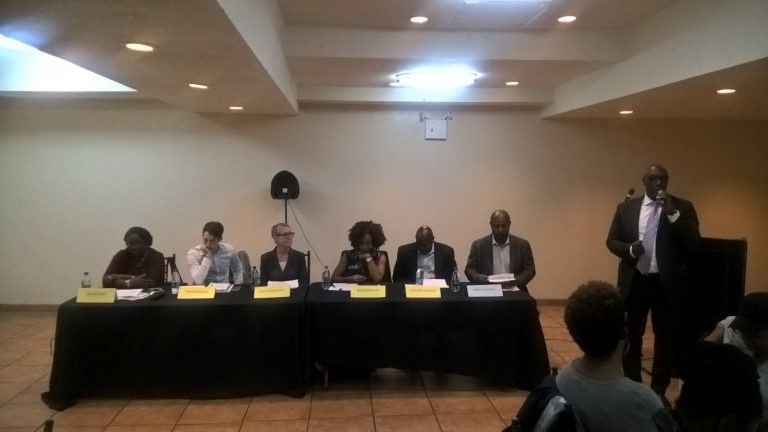 Following the resource fair was a panel discussion moderated by Malo Hutson, associate professor in urban planning at Columbia University. On the panel was Emilio Dorcely, president and CEO of Bridge Street Development Corporation; Colvin Grannum, president of Bedford Stuyvesant Restoration Corporation; Barika Williams, deputy director of the Association of Neighborhood and Housing Development; Simon Kawitzky, assistant commissioner of neighborhood strategies at HPD, Lynn Armentrot, deputy director of housing at Brooklyn Legal Services; and Denise Scott, executive vice president for programs at Local Initiatives Support Corporation .
Following the resource fair was a panel discussion moderated by Malo Hutson, associate professor in urban planning at Columbia University. On the panel was Emilio Dorcely, president and CEO of Bridge Street Development Corporation; Colvin Grannum, president of Bedford Stuyvesant Restoration Corporation; Barika Williams, deputy director of the Association of Neighborhood and Housing Development; Simon Kawitzky, assistant commissioner of neighborhood strategies at HPD, Lynn Armentrot, deputy director of housing at Brooklyn Legal Services; and Denise Scott, executive vice president for programs at Local Initiatives Support Corporation .
All of the panelist traded turns laying out residents' rights, and how to access services that can stem the tide of displacement.
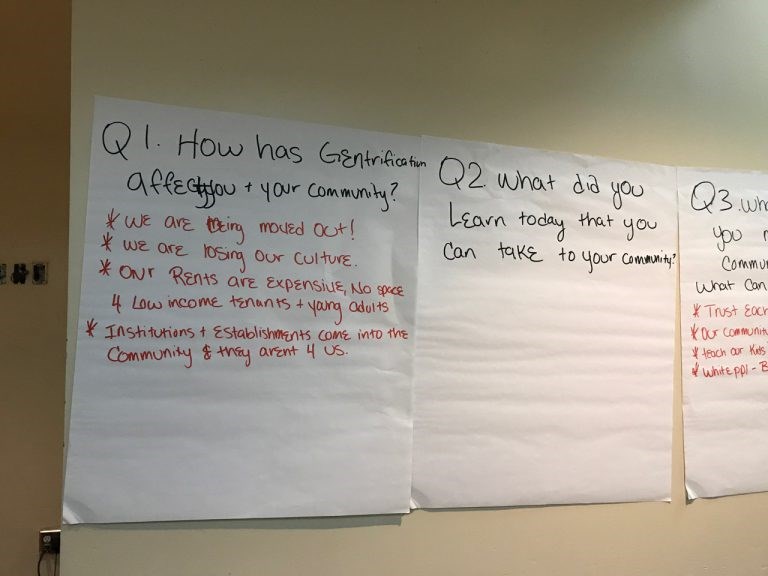
"[They] were extraordinarily knowledgeable about the issue and the neighborhood, who were either part of the solution or are helping to contribute," said Dorcely of the panelists. "People spoke their minds, they did not hold back."
Although half of the room cleared out after the panel discussion, many stayed behind for the Q&A session, which is when the discussion really got heated, as residents aired their frustrations with gentrification, or what many in attendance began to refer to as "ethnic cleansing."
"We as a people need to understand what's really going on. It's not gentrification; it is ethnic cleansing," said Iman Essiet, 27, of Bed-Stuy. "It is genocide and that's what we need to charge the United States with, because will give us a paradigm shift in understanding what's really happening to us."
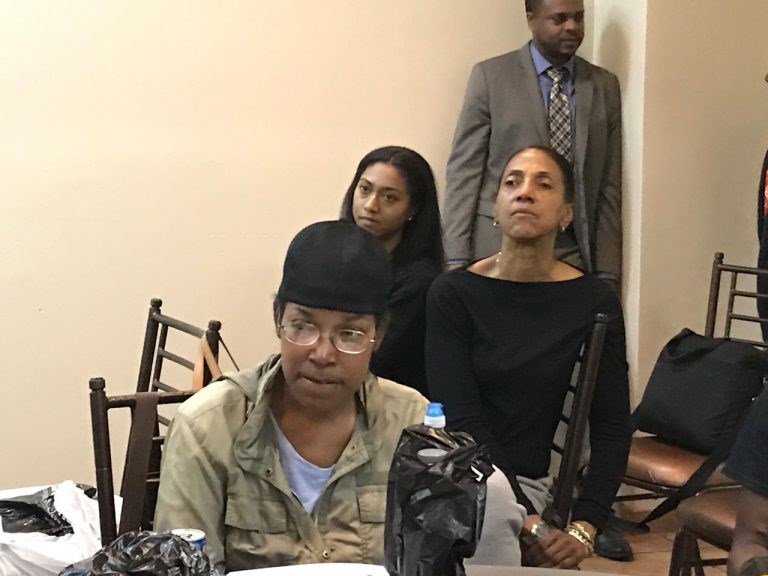
Oma Holloway, director of youth workforce programs at Bridge Street, added that more young people in the community need to be educated early on the importance of preserving culture and ways to hold on to their homes: "There are 24-year-olds who come into Bridge street and who are out of work, and and they are facing homelessness," said Holloway. "We're trying to teach them at Bridge Street how to look for housing options or shared programs with seniors. We're looking at how do we educate those that come into the community how to be a part of the fabric of the community and not totally change it? We all need to bring something to the table."
"There's a lot of pain," said Dorcely. "But I think that by bringing everyone together, these individual conversations that have been going on for probably a couple of years, people were able to express that pain. I think at times, it came out as disruption, but people feel powerless.
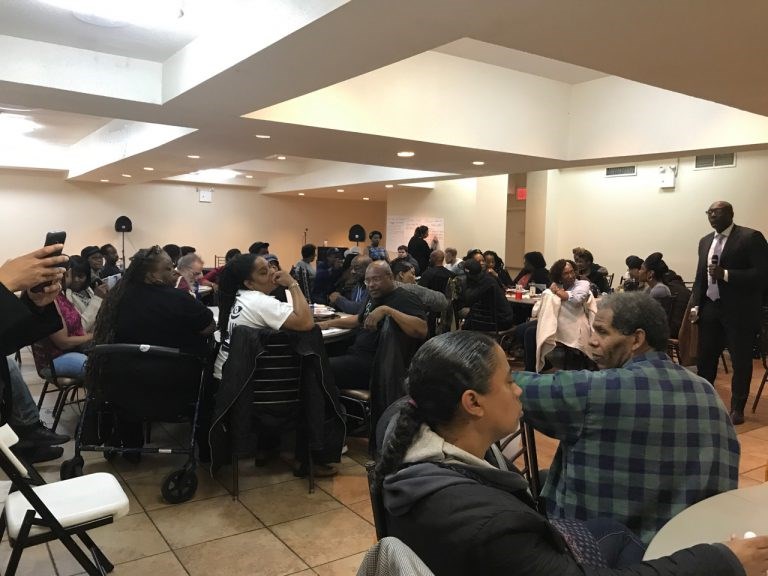 "I think now we must figure out ways to work past the pain and get to a place where we can begin to mobilize and take action in a way that creates results," he added.
"I think now we must figure out ways to work past the pain and get to a place where we can begin to mobilize and take action in a way that creates results," he added.
"I think we need another session. If people are interested in having another one, we will."



